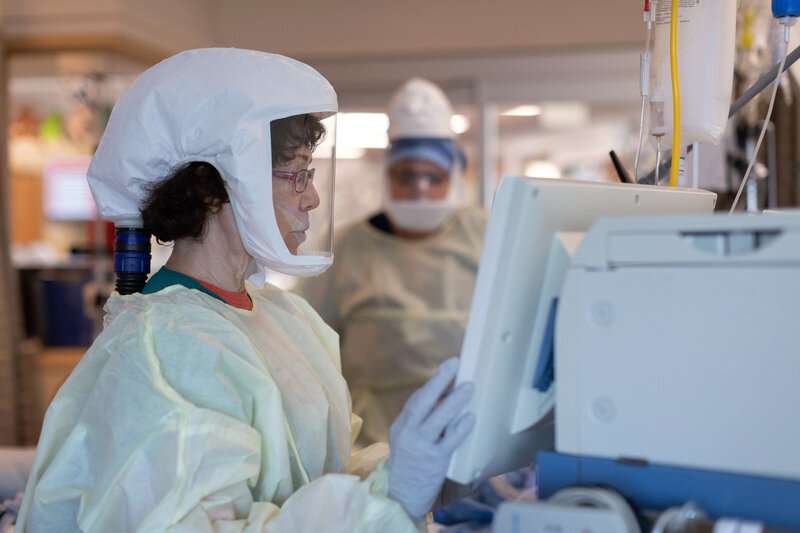This article has been reviewed according to Science X's editorial process and policies. Editors have highlighted the following attributes while ensuring the content's credibility:
fact-checked
proofread
COVID-19 infection leads to increased rates of chest pain six months to a year after infection, find study

Even patients with mild COVID-19 infections can suffer from health complications for months, even years, post infection. Nearly 19% of U.S. adults who had previously tested positive for COVID-19 report having "long COVID," where they experience signs and symptoms for four weeks or more after the initial phase of infection.
In an effort to quantify what long COVID means now, and could mean in the future for these patients, researchers from Intermountain Health in Salt Lake City studied nearly 150,000 patients for cardiovascular symptoms.
They found that patients who tested positive for COVID-19 had higher rates of chest pain in the six months to a year after the infection.
"Many COVID-19 patients experience symptoms well beyond the acute phase of infection," said Heidi T. May, Ph.D., cardiovascular epidemiologist at Intermountain Health and principal investigator of the study. "While we didn't see any significant rates of major events like heart attack or stroke in patients who had an initial mild initial infection, we did find chest pains to be a persistent problem, which could be a sign of future cardiovascular complications."
Results of the Intermountain study were presented at the American College of Cardiology's 2023 Scientific Conference in New Orleans on March 5.
In the large retrospective study, researchers compared three groups of Intermountain Health patients:
- 148,158 people ages 18 and up who tested positive for COVID and treated in an outpatient setting from March 2020 to December 31, 2021.
- 148,158 Intermountain COVID negative patients of about the same age and gender, seen in the same months, as those who tested positive for COVID-19.
- 148,158 patients seen between January 1, 2018, and August 31, 2019, as a historical control, to account for how patients accessed healthcare different during the worst of the pandemic.
The Intermountain research team found that at six months and one-year intervals, patients who tested positive for COVID-19 had significantly higher rates of experiencing chest pain, but saw no other increases in cardiovascular events.
"As of right now, the symptoms aren't necessary translating into hard outcomes, but that's something that will need to be reassessed over time," Dr. May said. "It could be that lasting effects of infection on the cardiovascular system are hard to quantify in terms of diagnoses or other events in the short-term and won't be realized until longer follow up."


















